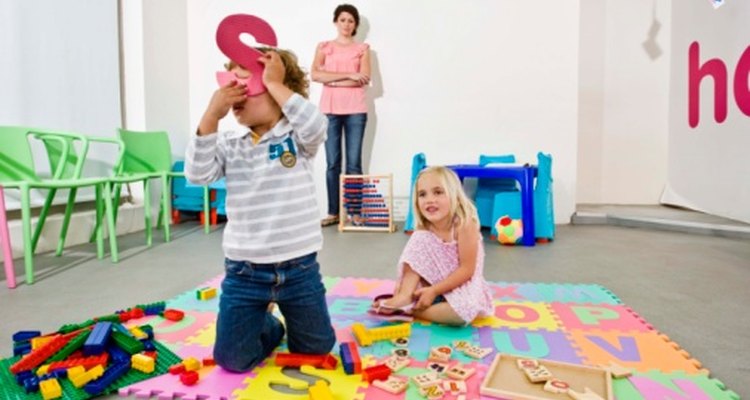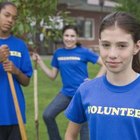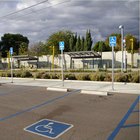
New parents returning to work are often daunted by the rising price of child care. The weekly tuition for just one infant may be more than what one parent earns, misleading parents into thinking their best option is to forgo employment and stay home with their child or children. For those in this situation, there are options. Many jobs offer free onsite day care, allowing parents to work without having to spend their entire salary on child-care costs.
Day-Care Teacher
One of the most well-known jobs with free child care is day-care teacher or assistant. Many day cares require employees to be CPR certified and/or complete child-care classes. This job is an excellent idea for those who love children, and many day cares offer free tuition for the children of their workers, although you will probably be put in charge of a separate class to avoid favoritism.
Nanny
Nannies provide personalized, one-on-one child care in the home of their employer. They may be responsible for one or many children, as well as other household duties, such as taking care of pets and plants. Depending on the family you are working for, you may be invited to bring your children with you, essentially having the option to provide your own child care while working.
Gym Trainer or Administrator
Many fitness centers offer free or inexpensive child care for their members, allowing parents to get in a workout while their children are supervised in a separate play area. Employees of such a gym may be allowed to leave their children there during their shift. However, child-care programs at places like this often consist of free play, meaning they do not have a structured educational system. This option is best for part-time workers.
Government Jobs
Working for the government has long been known to have many perks, including great benefits packages. Certain government jobs may offer child care in their headquarters for employees to use during their shifts.
College or High School Employee
Many colleges and high schools have child-care classes that involve hands-on practice working with real children. The children in these programs are usually the children of the students and employees of the school. If you obtain a job working at a place that offers these types of classes, you may be eligible to have your children attend these classes while you work on the same campus. A major benefit is knowing your child is being diligently watched by students who are having their performance and attentiveness graded by experienced child-care providers.
Related Articles

What Is the Difference Between a ...

How to Get Paid to Care for a Relative
How to Get a Job on a Cruise Ship

Free Summer Camps for Kids in Sacramento

How to Get Rental Assistance for Seniors

How to Help a Homeless Person if He Is ...

How to Get Paid to Care for Someone on ...

Three Warning Signs of Neglect

Preschool Teacher Requirements in ...

List of Volunteer Ideas for a ...

Government Funding for Taking Care of ...

How to Get Paid for Caring for Your ...

Programs to Take Care of a Disabled ...

Day Care Safety & Hazard Checklist
How Much Does a Nanny Cost?

The Pros & Cons of Family Assistance

How to Get Paid to Stay Home & Care for ...

Types of Volunteer Opportunities

State of Ohio Home Based Child Care ...

How Can I Fade Levi's?
References
Photo Credits
Jupiterimages/Goodshoot/Getty Images